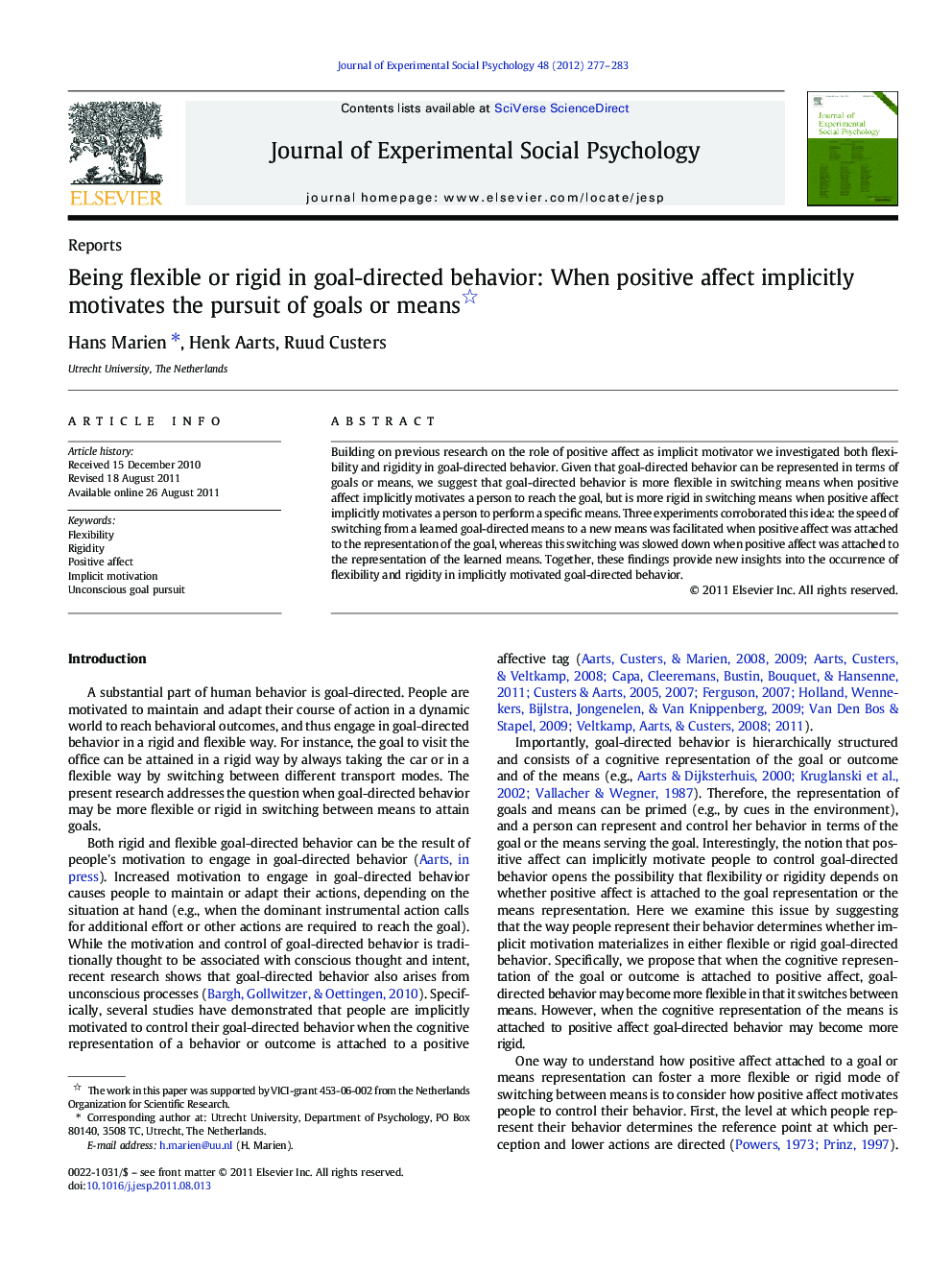| Article ID | Journal | Published Year | Pages | File Type |
|---|---|---|---|---|
| 948232 | Journal of Experimental Social Psychology | 2012 | 7 Pages |
Building on previous research on the role of positive affect as implicit motivator we investigated both flexibility and rigidity in goal-directed behavior. Given that goal-directed behavior can be represented in terms of goals or means, we suggest that goal-directed behavior is more flexible in switching means when positive affect implicitly motivates a person to reach the goal, but is more rigid in switching means when positive affect implicitly motivates a person to perform a specific means. Three experiments corroborated this idea: the speed of switching from a learned goal-directed means to a new means was facilitated when positive affect was attached to the representation of the goal, whereas this switching was slowed down when positive affect was attached to the representation of the learned means. Together, these findings provide new insights into the occurrence of flexibility and rigidity in implicitly motivated goal-directed behavior.
► People can be motivated to be flexible or rigid in their goal-directed behavior. ► Positive affect (PA) acts as an implicit motivator in goal-directed behavior. ► Goal-directed behavior can be represented in terms of goals and means. ► Linking PA to goal representations enhances flexibility (faster switch to new means). ► Linking PA to means representations enhances rigidity (slower switch to new means).
